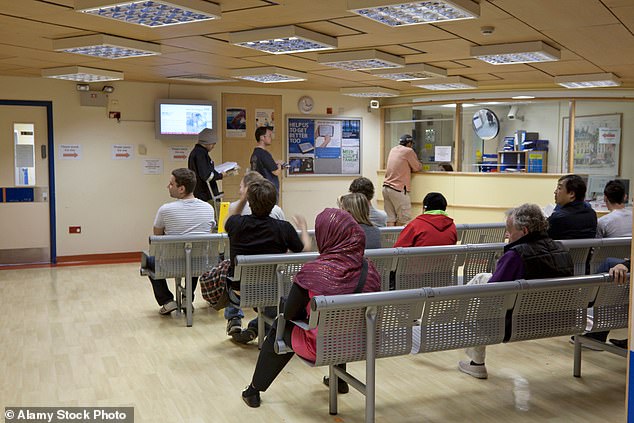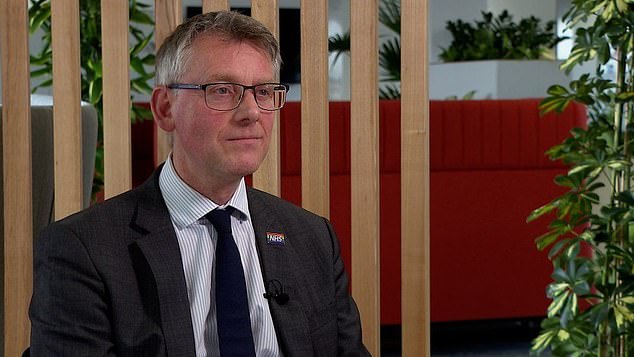Children and young people are at risk of becoming a ‘forgotten generation’ due to ‘crippling wait times’ for NHS care, report finds
- Report shows 82 per cent of trusts unable to meet demand for care for minors
Health leaders warn that children and young people are at risk of becoming a forgotten generation because of long waits for NHS care.
A report from NHS Providers has found that 82 per cent of hospitals surveyed are unable to meet demand for support for children under 18.
For example, mental health services contacted 5.3 million children and young people in 2023/24 – an increase of 8.1 per cent compared to 2022/23 and 25.7 per cent compared to 2021/22.
Most long-term health problems develop during childhood, with 75 percent of mental health problems occurring before the age of 24. “Intervention during this period is therefore critical to improving health outcomes in young people,” the study said.
In addition to mental health care, hospitals also offer services such as community nurses, speech therapy, neurodevelopmental services and autism assessment.
Health leaders have warned that crippling wait times for NHS care threaten to create a ‘forgotten generation’ of children and young people

A report for NHS providers found that 82 per cent of trusts surveyed were unable to meet demand for support for under-18s.
Governors from almost all of the 95 trusts surveyed said demand for services for children and young people had increased compared to before the COVID pandemic.
Research has found that wait times for an initial autism assessment have increased at 86 percent of hospitals, with one hospital reporting wait times of up to 38 months, compared to about 14 months before the pandemic.
The biggest challenges were found to be the increased complexity of patient care and the severity of their condition, as well as the fact that insufficient services were ordered.
Staff shortages were also cited as a barrier to delivering timely services, and trusts reported that failure to deliver adequate care was affecting staff morale and contributing to health inequalities.
Sir Julian Hartley, chief executive of NHS Providers, said: ‘We risk creating a forgotten generation of young people.
‘Too many young lives are being ruined by delays in accessing NHS care. Long waiting times have far-reaching consequences for a child’s social development, school readiness and educational achievement.’

Sir Julian Hartley (pictured), chief executive of NHS Providers, said long waiting times have “far-reaching consequences” for a child’s social development and educational attainment.

Staff shortages were also cited as a barrier to delivering timely services, with 95 per cent of trusts reporting that demand for children’s services has increased since the pandemic.
A Department of Health and Social Care spokesperson said: ‘It is unacceptable that young people are not getting the care they deserve and we know waiting times are too long.
“We provide mental health services in every school and drop-in centers in every community.”
